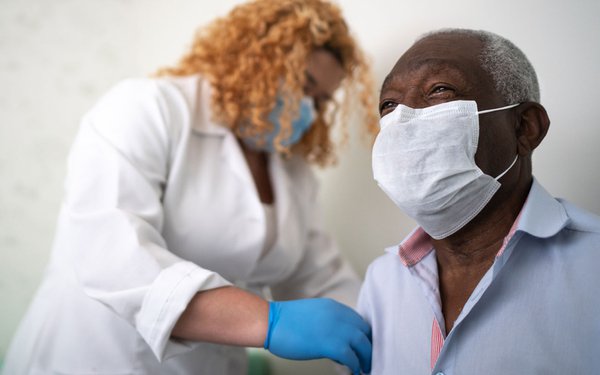
Nearly half of unvaccinated people are unsure
about getting a COVID-19 vaccine or have decided not to get it at all, according to a study.
But large pharmacies are playing a role in education and encouraging vaccinations per
internet search behavior and site visitation data, says Armen Petrosian, CMO at Disqo, an audience insights platform. The study, “Moving the Needle, Persuading the Vaccine Unsure,” aims to
understand COVID-19 vaccine attitudes, trust about information sources, and willingness to be vaccinated at pharmacy retailers.
Among a broad array of keyword searches related to
vaccine information such as “vaccine available” and “vaccine near me,” large majorities subsequently visited websites of four major pharmacy brands: Rite Aid, Walmart,
Walgreens, and CVS.
advertisement
advertisement
“Pharmacies have done a great job establishing themselves as convenient and trustworthy places to get annual flu vaccinations,” Petrosian tells
Marketing Daily. “This positions them to take a leadership role in persuading people who still have not yet gotten a COVID-19 vaccine to take the shot. If they are successful, they will
further their place as more than drugstores — they can be true health destinations.”
Disqo conducted a survey of over 22,000 people and gathered online activities from
over 30,000 opt-in users.
Of the unvaccinated users surveyed, 23% reported that they were unsure of whether they would accept a vaccine, and 22% reported that they intended to not
be vaccinated.
While the data showed that only 11% of “unsures” relied on “my pharmacy” as a source of vaccine information (versus 21% of committed
vaccine-getters), there is encouraging data that concerted efforts by pharmacy brands could have a positive impact, he says.
Those 18– to 24-year-olds are 70% more
likely to use pharmacies as a vaccine information source, and unsure Blacks were 67% more likely to say that “my pharmacy” is a source for COVID vaccine information. Unsure Hispanics were
10% more likely to say that “my pharmacy” is a source for COVID vaccine information.
Among the U.S. population, Blacks are 37% more likely to be unsure, while Hispanics
are 21% more likely to be unsure. Respondents with household income less than $50,000 annually are 10% more likely to be unsure -- and 20% more likely to say they will not take the vaccine.
Younger people are more likely to be unsure. Those 18-24 were 15% more likely to be unsure, and those 24-34 were 12% more likely to be unsure.
For those ages 35 and
younger who are unsure, social media is an important communications channel. Relative to the general public, those 18-24 are 2.4 times more likely to rely on it as a source, and those 25-34 are 1.5
times more likely.
While Disqo’s insights reveal the urgency of converting at least half of the unvaccinated and unsure to positive intentions for getting vaccinated, the data
also encouragingly showed that the “unsures” were 28% more likely to have received flu shots in the past.
Disqo noted this as a positive sign, since the annual flu
shot is the most common adult vaccine in the U.S. and may be a good proxy for future likelihood that the general population will seek and accept COVID vaccination.
One of the most
actionable findings from the Disqo Audience study is that 63% of the "vaccine unsures" are actually concerned or even extremely concerned about COVID-19 health impacts for themselves and their loved
ones. So marketing messaging from pharmacies addressing these concerns could prove effective, per the company.
The study was conducted March 3-5, when only approximately 14% of the U.S.
population had been reported vaccinated by the CDC. Now roughly 42% of the population have received at least one dose, though only 28.5% of the country's 330 million people are fully vaccinated, per
the Centers for Disease Control.
More than 5 million Americans who were inoculated with the Pfizer or Moderna vaccine have failed to get the second one within the recommended interval. That's
almost 8% of the first-dose recipients, and the numbers are growing.
The New York Times reports that the reasons for skipping the second shot
include fear of side effects, lack of supply and feeling that one dose provides enough protection.